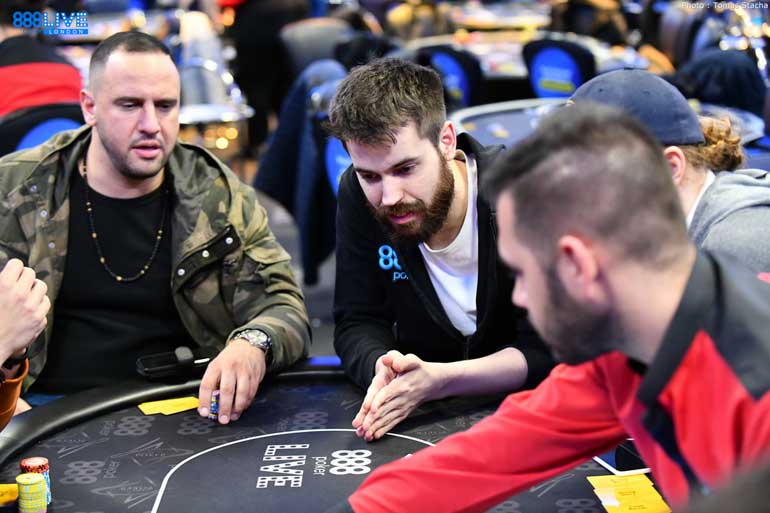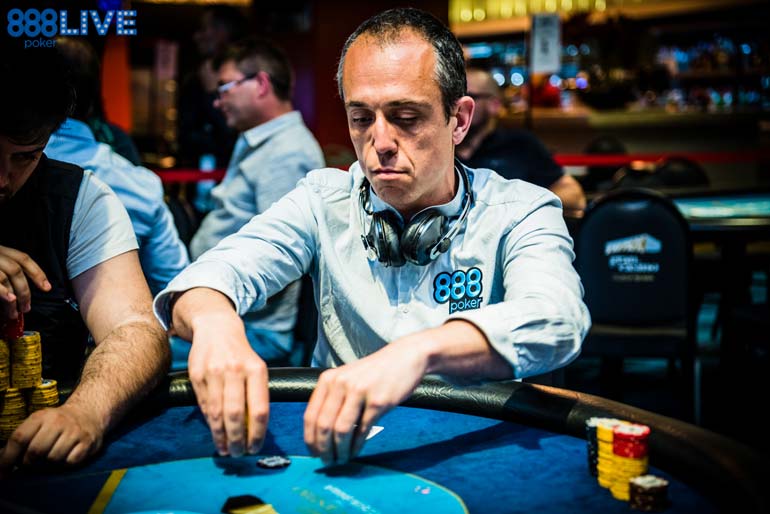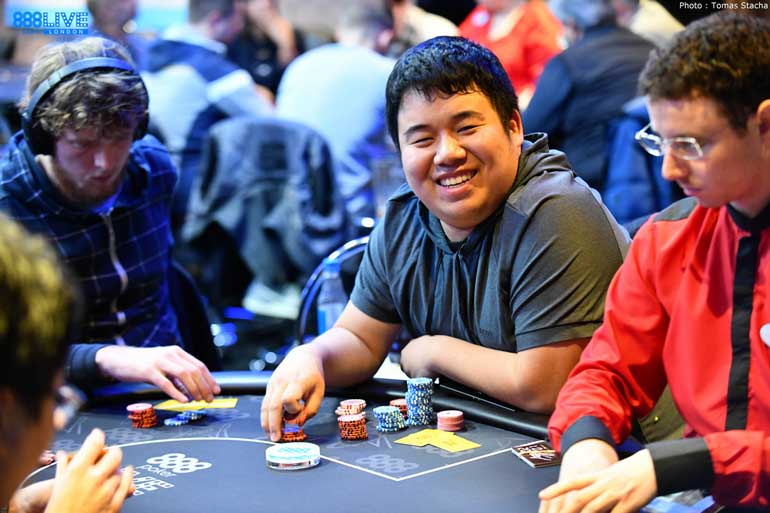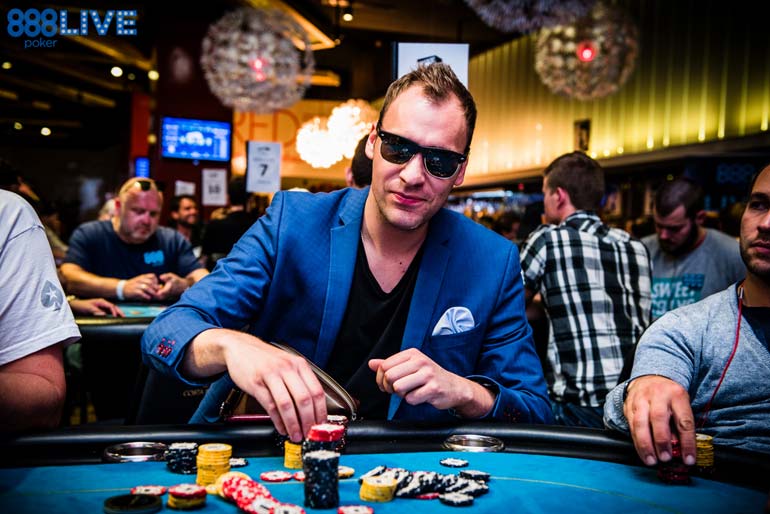“If there weren’t luck involved, I’d win every time.” - Phil Hellmuth.
As Phil Hellmuth polishes his record 16th WSOP bracelet, it’s fascinating a video of him berating an ‘idiot player’ and wondering why?
Phil is an unquestionably talented poker player. Who can’t relate to his hilarious outbursts? We’ve all felt the pain and frustration of a weaker player sucking out.
But let’s reflect on this, one of his most famous quotes:
- Should we be berating these ‘idiots’?
- Or embrace their run good with well wishes and ‘a crisp high-5’?
Whether you think Hellmuth’s good enough to live up to his obscenely bold claim is a topic for another day. But the reality is that if there was no luck in poker, the games would probably be much more challenging.
It’s easy to forget, but luck is what keeps poker running. It is the source of so many of the things that keep most bad players at the tables.
Let’s examine the various ways luck and less-skilled players influence the game:
Table of Contents
Luck’s Crucial Part in Poker’s Survival
Without luck, weak players’ skill disadvantages would be way more obvious and far more severe. They would be defenceless against more skilled players and would get chewed up very, very quickly.
There would be a massacre!
No doubt, it would be only a matter of time before weaker players got incredibly bored and frustrated. They would probably quit playing altogether.
As more and more people quit, the remaining players would have to improve, lose, or abandon ship.
Poker would soon become less fun and way more difficult. The average player ability would rise so much that the edges would shrink. The rake would become unbeatable, and the games would stop running entirely.
 Luck’s Crucial Part in Poker’s Survival
Luck’s Crucial Part in Poker’s Survival
Whoever you are, fewer bad players mean smaller profits. No matter how good you are, it’s as much the bad players’ high loss rate as it is the skills that ‘pay the bills’.
With no luck, there would be no games. It’s pretty hard to win or lose with no games to play!
On reflection, perhaps Phil should change his quote to the following:
‘If there weren’t luck involved, I’d break even every time!’
Embracing the Luck
Although poker is a skill game, luck adds a special kind of fun and excitement for those who would otherwise have no chance of winning. Many players play poker with a known skill disadvantage for this exact reason.
Think about all those smart billionaire business tycoons playing super-tough high roller events.
Do you think they believe they have an edge? Of course not!
And they don’t play because they hate money either. It’s hard to become a billionaire in the first place with that philosophy.
- They play for the thrill and the potential prestige.
- They play to ‘get lucky’ and for the chance to win a huge trophy they can use as an elaborate paperweight.
There are many reasons why losing players play poker. Removing the short-term luck would jeopardise most of them and negatively impact their desire to play.
It’s essential to realise that the sense of elation losing players get when they win a big hand is invaluable. This fact is true for both you and the wider poker ecosystem.
As well as the immediate financial bonus, this feeling helps them break the cycle of losing. It gives losing players a little belief in themselves - their validation.
 Embracing the Luck
Embracing the Luck
It’s both the reason they play and a reminder of why they do.
The beauty of luck in poker is that it works as an anaesthetic.
- It can overpower the pain of losing and disguise what would otherwise be glaringly obvious strategic shortfalls.
- It can mask weak players’ skill disadvantages or stop them from caring altogether.
- Luck can overpower skill (in the short term) and help losers feel like winners.
This reason is why people play.
You should learn to love luck. Welcome, embrace and celebrate it. Instead of berating a ‘lucky idiot’, congratulate them. You’ll create a way more positive atmosphere.
It will make the whole experience far more enjoyable for everyone at the table. People will want to play with you more often.
You’ll feel better too. Stress and negativity affect your sleep and mood. So, get into the habit of being happy for people ‘getting lucky’. You’ll have a more welcoming aura and be more physically and mentally healthy.
Always try to remember that there isn’t anything to worry about in poker when it comes to luck.
When said and done, luck is winning player’s friend in the long term.
So, relax and enjoy the ride.
Berating Bad Players
Nobody wants or expects to feel uncomfortable doing something they are supposed to be enjoying. This statement should go without saying:
- You’ve no right to attack someone’s play, decision, style, personality, dress sense or choice of cocktail!
Check out this article about the importance of protecting the table’s atmosphere and etiquette.
Remember, people don’t go to the dentist because they want to - they go because they have to.
Making your opponent’s poker experience as uncomfortable as a root canal is only going to make them reluctant to come back.
Can you see how this is bad for the game’s longevity by now?
You should see it as your duty to make poker feel like recreation to players playing recreationally. Anything that makes a player feel bullied, alienated or inadequate should be outlawed.
After all, your longevity and success are tied to theirs.
 DON’T Berate Your Opponents
DON’T Berate Your Opponents
- Whatever your skill level, try to see players weaker than you as your customers.
- Your poker business needs them far more than they need you.
- Without them, you’re going to struggle to win.
Making any player feel unwelcome is like a restaurant replacing their chairs with cacti
It’s going to make a lot of people very uncomfortable.
Remember, ‘the customer is always right’.
Educating Losing Players
You shouldn’t discuss strategy at the table either.
An annoying player at pretty much every poker table in the world is the ‘know it all’. Most of us have been this player at some point in our careers. We stumble across an article on c-betting and think we’ve solved the game.
For some unknown reason, we feel compelled to pour our newfound wisdom on our peers to show how amazing we are!
These players are usually a classic case of the Dunning -Kruger effect (delusional overconfidence). But some solid players love to discuss strategy at the tables.
Even if your strategy is cutting-edge, it’s a mistake to share it for several reasons:
- You will annoy other players and ruin the table atmosphere.
- You tell everyone which level you are at, which will help other players understand how you think. Some will be able to devise strategies to beat you.
- Weaker players will hear and improve - thanks to the free coaching.
- Weaker players will feel insecure and want to quit.
- You will alert weaker players of strategies and leaks, and they will study to improve.
ALL OF THESE MAKE YOUR GAME TOUGHER!
Educating a losing player is like tearing a massive hole in a losing player’s mildly punctured rubber dingy:
They were sinking already.
You just made it far more apparent.
Now they’re either going to fix it or get out of the water.
Good job!
Turning Tilt from Entitlement to Acceptance
 Turning Tilt from Entitlement to Acceptance
Turning Tilt from Entitlement to Acceptance
Describe tilt - You’d probably say something along the lines of the following:
‘Tilt is when a player gets angry and starts playing badly after losing a big hand.’
While this is true, there can be more to it.
Ever been donked out of a tournament and sat seething as you watched the fun player splashing ‘your’ chips around?
Ah, you remember it like it was yesterday.
You had J9s and opened the cut o…. just joking!
Spare us the bad beat story
But trust me, as someone that’s all but bubbled a WSOP Main Event, I know how it feels.
In a spiteful way, there should be a little solace in the fact he’s sure to dust them off and bust pretty soon afterwards, but there isn’t.
And knowing he has little chance of winning makes the whole thing feel far, far worse!
It stings more than a regular bust-out. It’s that overwhelming feeling that you know you would use the chips way better than him. If only you could have just won the hand.
He played so badly - He didn't deserve to win!
It’s the same feeling you get when you’re sitting at a cash table, and there’s a huge whale splashing money around. You’re desperate to get into a pot, but you keep getting j2o.
- Finally, you find a hand.
- You 3bet QQ and lose a decent-sized pot to his J8o, which rivers two-pair.
- He gives he newly acquired chips away in the very next hand, getting JTo all-in on a ten-high flop against a tight player’s Kings
You sit there feeling an overwhelming sense of injustice.
You’re better than both of these guys. You should be winning, right?!
Wrong! Although poker is a game of skill, the best players don’t always win in the short term.
This sense of entitlement is essentially a form of tilt.
Crushing Tilt - A New Perspective
You must learn to recognise and manage entitlement tilt. The best way to do this is with a change in perspective.
Remember, profits can only exist in poker if there are losers.
And guess what? People don’t like to lose!
Think about it. If the best players always won, they would be the only ones playing. The games would become unbelievable tough. The edges are likely to be so small that rake would kill the entire industry.
The best way to manage your entitlement tilt is to find a way to come at things from a new angle. Remember, we learned to embrace luck earlier.
So, stop obsessing about how much better you are than other players (assuming you are!) and whining that ‘it’s unfair’.
Find the positives in losing.
 Crushing Tilt - A New Perspective
Crushing Tilt - A New Perspective
Remember what Zig Ziglar said, ‘If you learn from defeat, you haven't really lost.’
It might help to look at losing to inferior players as some kind of rent, rake, or session fee - something you have to pay so the game can continue.
It’s the price of winning long term.
To expand further, let’s make comparisons with a bank manager.
Ever seen a bank manager throw his monitor across the branch after approving a loan? Nope. They do it with huge smiles on their face because they know they’ll make a profit eventually.
- So, when a losing player wins, take a breath, smile.
- Stamp the metaphorical cheque book and ask them what denomination of notes they would prefer.
Remember, all they’ve done is take a loan from the Bank of Winning Poker Players.
Their skill disadvantage means they’ll pay it back with interest in the long term.


